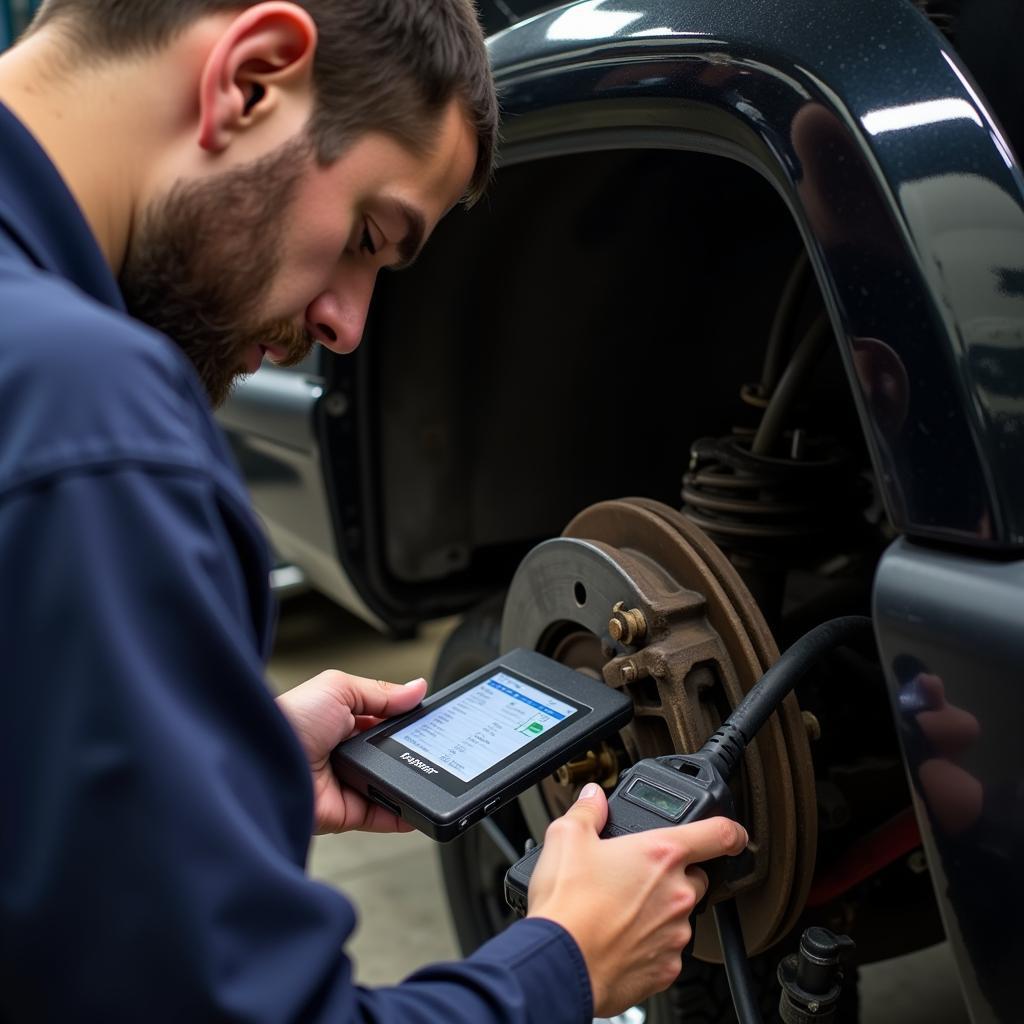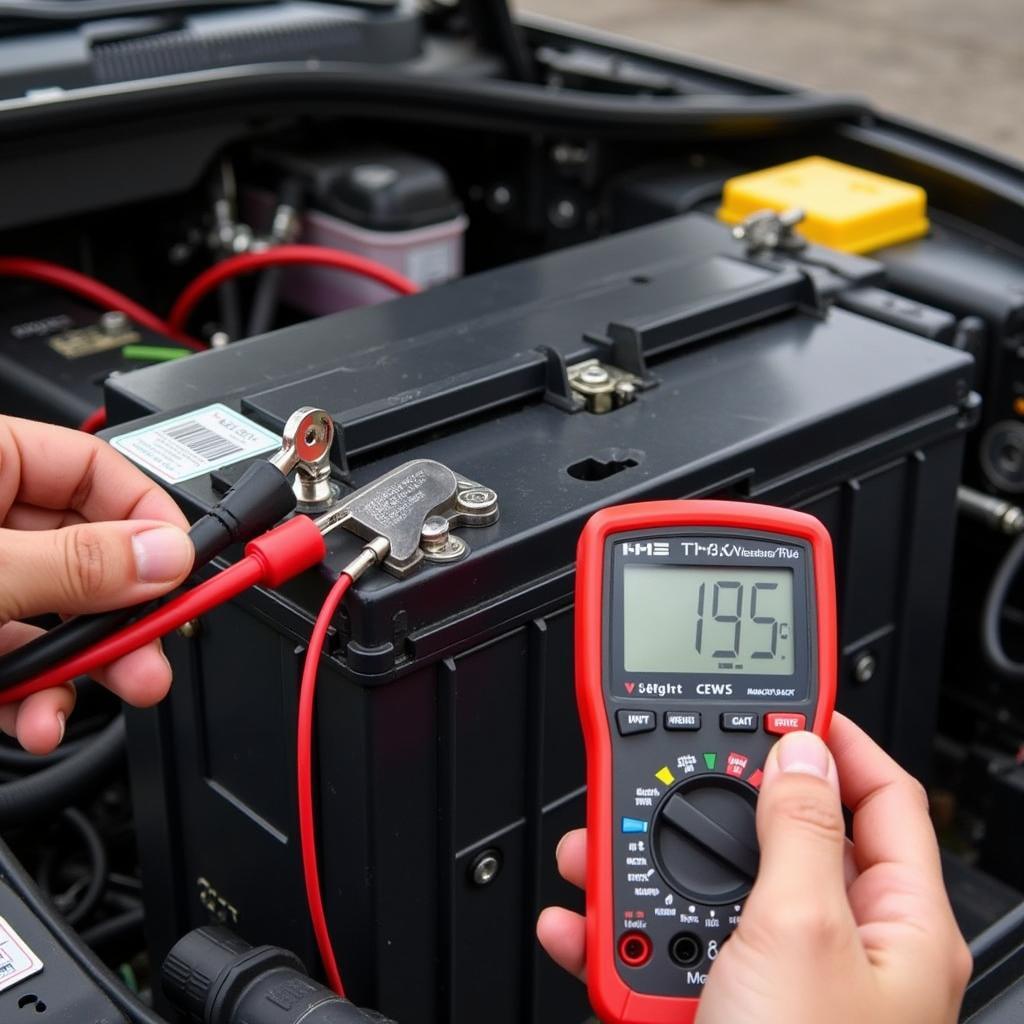The brake warning light on your dashboard is a crucial safety feature. When it illuminates on your 2000 Jeep Cherokee, it signals a potential problem within your braking system that requires immediate attention. Ignoring this warning could lead to brake failure, putting you and others at risk. This article will guide you through the common causes of a 2000 Jeep Cherokee brake warning light and provide potential solutions to help you get back on the road safely.
Common Causes of a 2000 Jeep Cherokee Brake Warning Light
Several factors can trigger the brake warning light in your Jeep Cherokee. Some of the most common culprits include:
- Low Brake Fluid: One of the most frequent reasons for the warning light is low brake fluid. Your braking system relies on hydraulic pressure, and a leak or worn-out brake pads can reduce this pressure, triggering the warning light.
- Worn Brake Pads: Brake pads naturally wear down over time. If they become excessively thin, a sensor will activate the warning light, indicating it’s time for a replacement.
- Faulty Brake Light Switch: The brake light switch activates your brake lights when you press the pedal. If this switch malfunctions, it can also illuminate the brake warning light.
- ABS Issue: Your 2000 Jeep Cherokee is equipped with an Anti-lock Braking System (ABS). If the ABS module encounters a problem, it can trigger the warning light. This could indicate a faulty sensor or an issue within the ABS system itself.
- Parking Brake Engaged: While seemingly obvious, it’s easy to overlook. If your parking brake is even slightly engaged, it can trigger the warning light.
Troubleshooting the Brake Warning Light
Before rushing to a mechanic, there are a few things you can check yourself:
-
Check Your Parking Brake: Ensure your parking brake is fully disengaged.
-
Inspect Brake Fluid Level: Locate the brake fluid reservoir under the hood. The reservoir will have a “min” and “max” marking. If the fluid level is below the “min” line, add the appropriate brake fluid.
-
Visual Inspection: Look for any visible signs of brake fluid leaks around the wheels or under the vehicle.
“It’s crucial to remember that brake fluid is corrosive. If you suspect a leak, it’s best to avoid driving and consult a mechanic immediately.” – John Smith, Senior Automotive Technician
When to Seek Professional Help
If the brake warning light remains illuminated despite checking these initial factors, it’s essential to seek professional assistance. Driving with a persistent brake warning light can be dangerous. A qualified mechanic can accurately diagnose the issue using specialized diagnostic tools and recommend the necessary repairs.
 Mechanic Diagnosing Brake System Issues on a 2000 Jeep Cherokee
Mechanic Diagnosing Brake System Issues on a 2000 Jeep Cherokee
Conclusion
Addressing the brake warning light in your 2000 Jeep Cherokee is crucial for your safety. By understanding the potential causes and knowing when to seek professional help, you can ensure your Jeep’s braking system remains in optimal condition. Regular maintenance and timely repairs will provide peace of mind and contribute to a safer driving experience.


